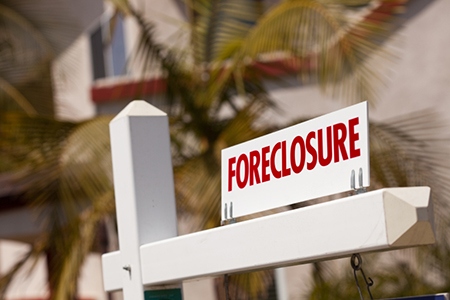Talk with your lender immediately. The lender may be able to arrange a repayment plan or the temporary reduction or suspension of your payment, particularly if your income has dropped substantially or expenses have shot up beyond your control.
You also may be able to refinance the debt or extend the term of your mortgage loan. In almost every case, you will likely be able to work out some kind of deal that will avert foreclosure.
If you have mortgage insurance, the insurer may also be interested in helping you. The company can temporarily pay the mortgage until you get back on your feet and are able to repay their “loan.”
If your money problems are long term, the lender may suggest that you sell the property, which will allow you to avoid foreclosure and protect your credit record.
As a last resort, you could consider a deed-in-lieu of foreclosure. This is where you voluntarily “give back” your property to the lender. While this will not save your house, it is not as damaging to your credit rating as a foreclosure.





